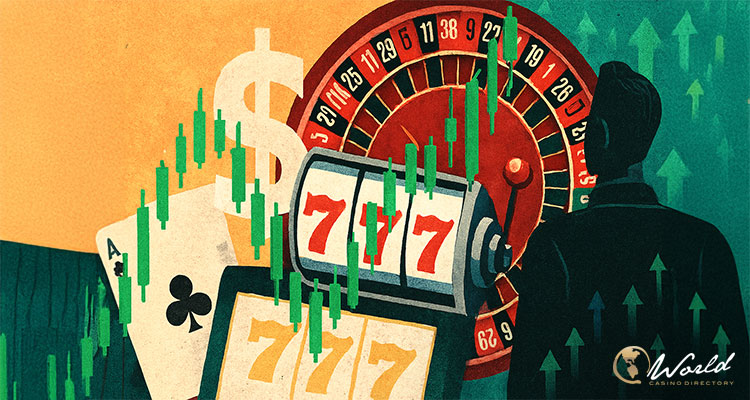As the expansion of iGaming in the U.S. faces challenges, sweepstakes casinos are rising to prominence—becoming one of the most rapidly expanding and often discussed areas of the online gambling sector. Waterhouse VC’s June report emphasizes how this legally ambiguous model is drawing interest from both players and investors, with significant revenue growth and increasing competition.
Sweepstakes Outperforming Regulated iGaming
According to Waterhouse VC, which focuses on global gaming investment, the sweepstakes casino industry generated $3.1 billion in gross gaming revenue (GGR) in 2022. This figure is expected to escalate to $11 billion by 2025, significantly outpacing revenues from state-regulated iGaming platforms.
With only seven states permitting regulated online casinos, the sweepstakes model is becoming a favored alternative, particularly in areas where legislation is stalled due to political challenges, ethical concerns, or resistance from existing brick-and-mortar establishments. Sweepstakes casinos offer an effective workaround, successfully attracting users.
Factors Driving the Sweepstakes Surge
Several structural benefits are fueling this growth. Unlike regulated casinos that mandate strict identity verification and geolocation checks, sweepstakes platforms enable users to begin playing with just an email and a phone number. Additionally, these platforms face fewer advertising restrictions; they can promote freely on Google, Meta, and TikTok—mediums typically restricted for regulated gambling brands.
Moreover, these companies avoid paying licensing fees or state gaming taxes, allowing them to spend aggressively on innovation, customer engagement, and acquisition. Although conversion rates to paid play may be lower, the users who do spend are often highly engaged and loyal.
Market Fragmentation and Intensifying Competition
As noted by Waterhouse VC, the sweepstakes sector is witnessing growing competition. VGW, the company behind popular brands like Chumba Casino and LuckyLand Slots, previously held over 90% of the market share, now reduced to about 50%. Over 25 new operators are anticipated to enter the market in 2025 alone.
This surge in competition indicates a frantic race among companies to establish brand loyalty ahead of potential regulatory changes. While this offers substantial opportunities, it also heightens the risk of increased regulatory oversight.
Industry Leaders Committing to Sweepstakes
Gaming Innovation Group (GiG) is actively targeting the U.S. sweepstakes market with its new platform, SweepX, launched in May. GiG views this opportunity as one that significantly expands its market reach. SweepX features a dual-wallet system, prize store management, and AI-driven gamification to enhance user engagement. Primero Games is set to be the first client to launch on the platform later this year.
GiG estimates that sweepstakes casinos have a potential lifetime player value of up to $1,000 over two years, with typical transaction sizes between $20 and $50. GiG Software, the company’s newly spun-out platform division, will begin trading on the Nasdaq First North market on October 1, with an anticipated €44 million in revenue for 2025.
Playstudios Approaching Nationwide Launch
Playstudios is also making significant investments in sweepstakes casinos. Known for titles like myVegas Slots, the company is nearing a national rollout of its sweepstakes platform. CEO Andrew Pascal indicated in a recent earnings call that after nine months of development, the platform is now in open beta across seven states.
“Player retention, engagement, and monetization are all showing positive trends,” Pascal remarked, noting that the new sweepstakes approach is reshaping consumer behavior and exerting pressure on traditional social casinos. Anticipating these dynamics, Playstudios launched a reinvention program last year to adapt.
Final Outlook: Growth Amid Uncertainty
The rise of sweepstakes casinos in the U.S. is transforming the online gambling landscape, bringing rapid growth to areas where regulations are lacking. Currently, operators enjoy robust profit margins and advertising freedom, appealing to investors.
However, future prospects hinge on regulatory frameworks. Waterhouse VC highlights that the ongoing success of the sweepstakes industry may rely heavily on how regulatory bodies choose to categorize and manage these operations. As more participants and investments enter this market, oversight seems increasingly likely, making the sweepstakes model a contentious yet captivating frontier in gambling.



